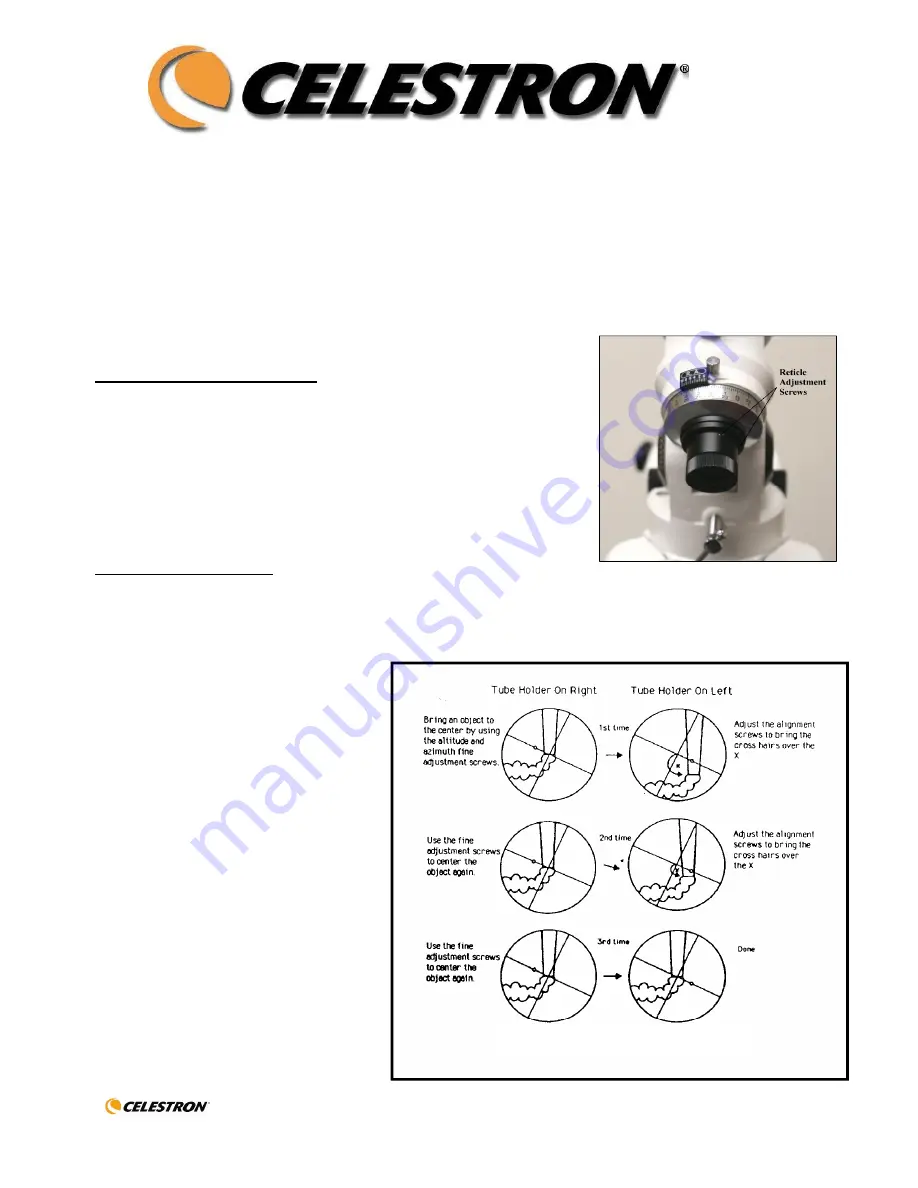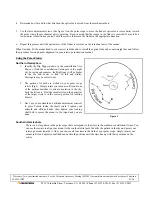
2835 Columbia Street, Torrance, CA 90503 • Phone (310) 328-9560 • Fax (310) 212-5835
Figure 2
Polar Axis Finderscope- CG-4 & CG-5 - #94223/94224
The Celestron Polar Axis Finder is designed to help you polar align your CG-4 (Omni Series) or CG-5 (Advanced Series)
Equatorial Mount quickly, easily and with a high degree of accuracy. As a result, you can spend more time observing and
less time setting up.
Polar alignment is the process of aligning the telescope with the Earth’s rotational axis. Once done, this will allow you to
track celestial objects as they move across the sky and accurately use your telescopes Setting Circles (CG-4 Mount). The
Celestial Coordinate System, Motion of the Stars, Using Setting Circles, are described in the telescope instruction manual.
For those using a telescope in the northern hemisphere, polar alignment is relatively easy due to the fact that the North
Celestial Pole (NCP) has a bright star close to it (Polaris) that’s easy to find.
Installing the Polar Axis Finder
1.
Remove the finderscope housing on the rear of the telescope’s polar housing.
2.
Insert the Polar finder into the telescope housing and thread clockwise until
tight.
3.
Remove the cap from the front of the polar housing a rotate the declination
axis until you can see through the polar housing without obstruction. (for
CG-5 mounts only)
Aligning the Optical Axis
Before the polar finder can be used it needs to be aligned with the polar axis of
your telescope’s mount. Note, you can do this procedure at night while pointing at Polaris. However, it is probably easier to
do it in the daytime using a distant point as your target (e.g, a street light a couple of hundred yards away). Before
calibrating the optical axis, remove the telescope, the counterweights and the counterweight bar from the mount. Next,
using the altitude adjustment bolts, incline the
polar axis until it is level to the ground.
To align the optical axis of the finder:
1.
Release the R.A. clamp and rotate the
mount until the platform where the
telescope sits is off to the right of the
mount.
2.
Find an object in excess of one mile away
and center it on the cross hairs.
3.
Now, release the R.A. clamp again and
rotate the mount so that the telescope
platform is on the left side of the mount.
The object originally seen at the
intersection of the cross hairs will, most
likely, have moved off-center (See figure
2). The point where the cross hairs
intersect (center of the optical axis) will
scribe a semi-circle around the point
where the mechanical axis is pointing.
Figure 1












